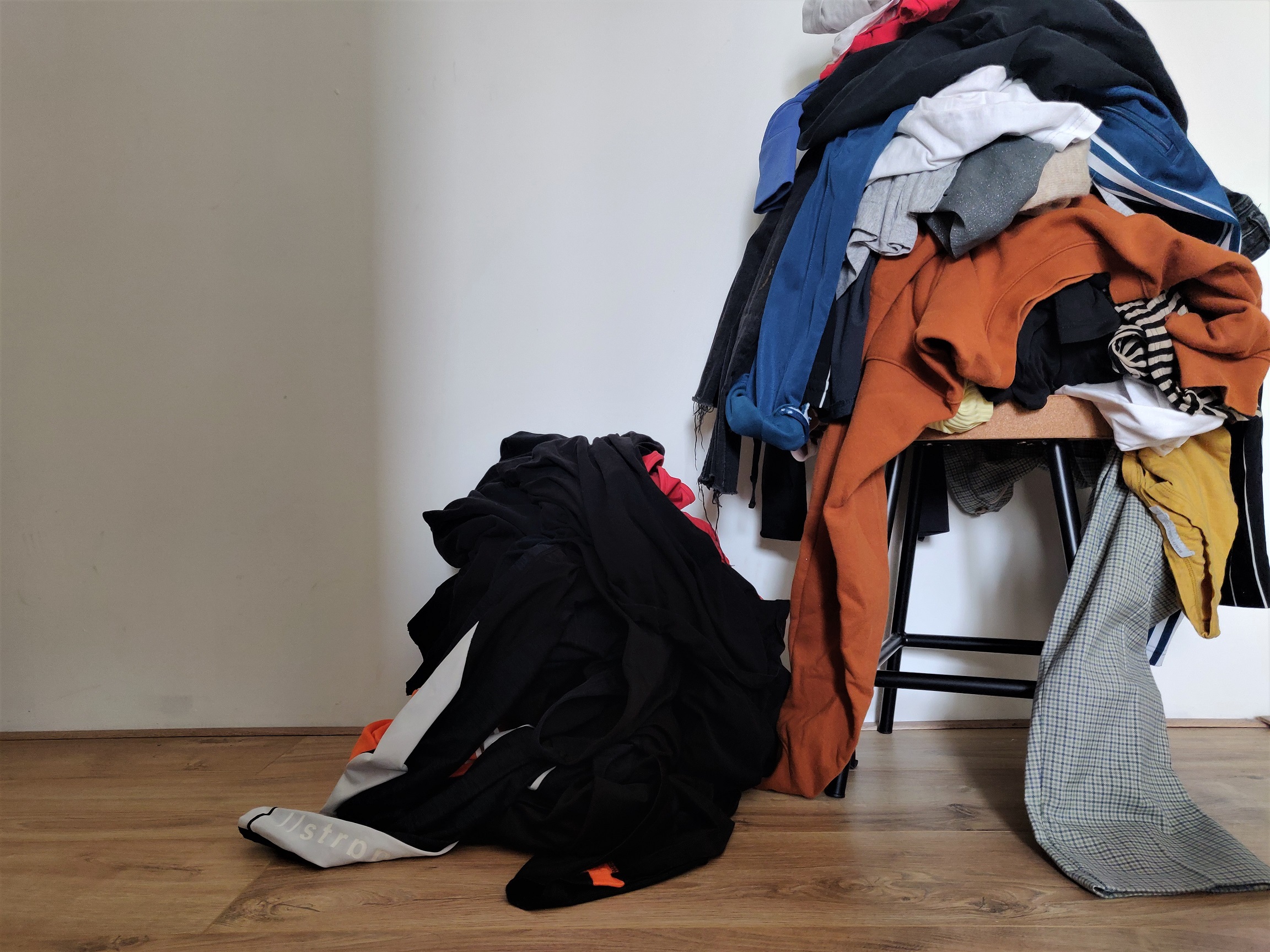TU Delft alumna Cynthia Ko is challenging students to go three months without buying new clothes. The fashion detox starts on 1 July. “Swapping or thrifting is fine.”
“The fashion industry is one of the most polluting industries in the world.” (Photo: Marjolein van der Veldt)
A 90 day pledge to not buy any new clothes sounds like a long time, but according to TU Delft alumna Cynthia Ko, it is a unique opportunity to reflect on your fashion consumption.
What is the fashion detox challenge?
“The challenge is a 90 day pledge from 1 July to 30 September urging everyone in the world to not buy any new clothes. Instead, we want to encourage pledgers to use what they already have or borrow, swap, thrift or make clothes themselves.”
What are the benefits of detoxing for three months?
“This challenge is a chance for anyone who cares about the planet, its people or their own mental health to pause their usual clothing consumption patterns and reflect on how it affects us. Everyone deserves to breathe clean air, drink clean water and live a decent life. The fashion industry is destroying these human rights as it is one of the most polluting industries in the world. It uses massive amounts of clean water: a single t-shirt takes 2,700 litres of water to make.”
‘This challenge is a way of exploring new ways of consumption’
Why should TU Delft students join?
“TU Delft is a vocal supporter of the circular economy. People all over the world took its online Engineering Design for a Circular Economy course. We know technically why the circular economy is important, but how many of us have ever tried to walk the talk and experience what it actually feels like to be a part of a circular economy? This challenge is a way of exploring new ways of consumption, especially now lockdown measures are easing up and long-planned celebrations are starting to get up and running. The wedding that’s finally being planned, those birthday parties that have been missed… Rather than celebrating these with new clothes, why not try a clothes swap event, go thrift shopping or even rent an outfit?”
How did you get into the slow fashion movement?
“While doing my MSc Design for Interaction, I felt the urge to do something for the planet but also felt like I lacked the understanding of human behaviour to create change. I had experimented with sustainable food and the sharing economy through various projects, yet genuinely changing people’s behaviour remained a mystery.
So for my electives, I chose Behaviour Change modules at University College London (UCL). I was exposed to a vibrant and liberal student culture in the UCL Climate Action Society and in my role as a UCL Sustainability Ambassador. This inspired me to do something about the fashion industry, one of the most polluting industries in the world.”
What do you hope to achieve with the slow fashion movement?
“I hope people will realise that putting out sustainable innovations isn’t enough. We are all responsible for our planet and need to reflect this responsibility in our own behaviour. This goes beyond changing our individual consumer behaviour, it is about using our changed consumer behaviours to send a message out to polluting industries, urging them to up their game. We can vote with our wallets and vote with our actions. Being a campaigner isn’t only about climate marches.”
- If you want to join the #FashionDetox challenge, make sure to sign up before 1 July on the Slow Fashion Movement website.
- Or watch the documentary ‘The True Cost’ to find out more about the impact of fashion on people and the planet.
Do you have a question or comment about this article?
m.vanderveldt@tudelft.nl


Comments are closed.